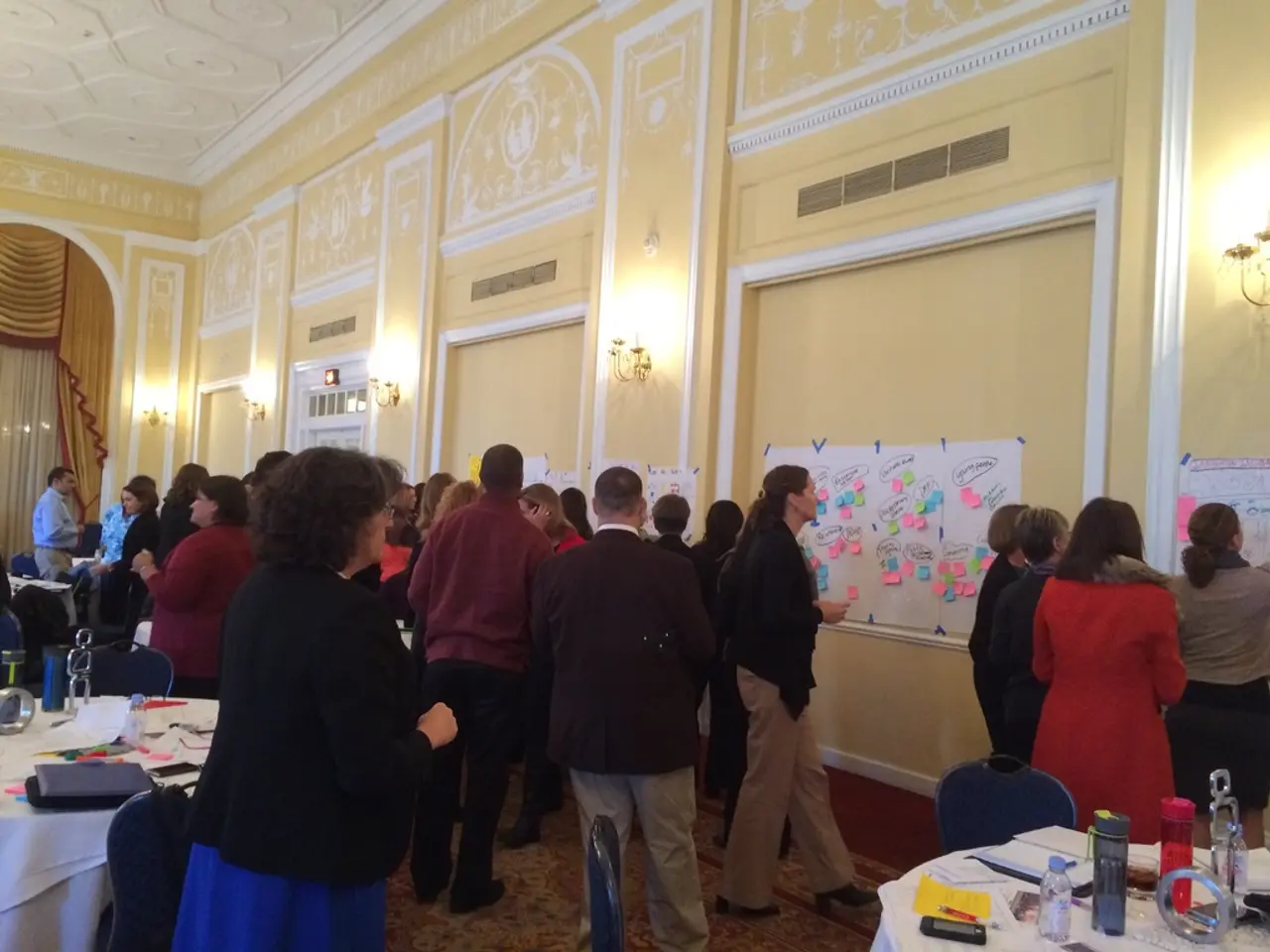Researchers showcase privacy-focused studies in computer science field
Johns Hopkins and Notre Dame Unveil Interactive Digital Privacy Tool for Kids at Smithsonian Event
Computer scientists from Johns Hopkins University and the University of Notre Dame have developed an interactive software tool aimed at educating children about digital privacy. The tool, known as the Hopkins Privacy and Security Lab sandbox, was showcased at a recent educational event held at the Smithsonian's National Museum of Natural History in Washington, D.C.
The sandbox is an iPad-based tool that presents users with real-world scenarios where they decide whether to share personal information online. It operates in a risk-free environment, using no actual personal data, allowing children to explore the consequences of their privacy decisions without any real-world risks.
The sandbox is a kid-friendly version of a previous implementation designed to help children understand that privacy is not a simple yes-or-no matter but a spectrum involving various factors. The tool targets elementary and middle school children but is also beneficial for older children and their parents.
Yaxing Yao, an assistant professor of computer science at the Whiting School of Engineering and the director of the Hopkins Privacy and Security Lab, is one of the co-leads of the team that created the sandbox. Yao's research focuses on educating children and families about digital privacy.
The sandbox aims to demonstrate the complexities of privacy decisions in digital environments, provide a safe, interactive learning experience, help children and parents gain a practical understanding of privacy as a nuanced concept, and encourage informed decision-making about sharing personal information online.
Over 150 visitors stopped by to speak with the researchers and try the educational tool at the event, titled "Privacy, Security, and Safety in Digital Space." The event was part of the Smithsonian's Expert Is In program.
The creators plan to improve the tool based on feedback and expand its use to other museums to further digital privacy education for children and families. The project is supported by the National Science Foundation and falls under the category of Science+Technology.
Yao stated that the idea of privacy can be abstract, and they wanted to get a better sense of how people think about the things privacy researchers do. Sometimes, parents realize they don't know much about privacy when they want to talk to their children about it.
The event took place in the museum's "Cellphone: Unseen Connections" exhibit on July 18. The interactive tool, called the "sandbox," is installed on iPads and allows users to engage with real-world scenarios involving sharing personal information online. The project reflects broader efforts to increase public digital privacy literacy through engaging, hands-on educational tools developed by leading computer science researchers at Johns Hopkins and Notre Dame.
- Yaxing Yao, a computer science researcher at Johns Hopkins University, focuses on educating children and families about digital privacy and is one of the co-leads of the team that developed the Hopkins Privacy and Security Lab sandbox, an interactive digital privacy tool aimed at children.
- The sandbox, which targets elementary and middle school children but is also beneficial for older children and their parents, presents users with real-world scenarios where they decide whether to share personal information online in a risk-free environment, using no actual personal data, thus allowing children to explore the consequences of their privacy decisions without any real-world risks.
- The sandbox project, supported by the National Science Foundation and falling under the category of Science+Technology, aims to demonstrate the complexities of privacy decisions in digital environments, provide a safe, interactive learning experience, help children and parents gain a practical understanding of privacy as a nuanced concept, and encourage informed decision-making about sharing personal information online, ultimately contributing to increasing public digital privacy literacy.




